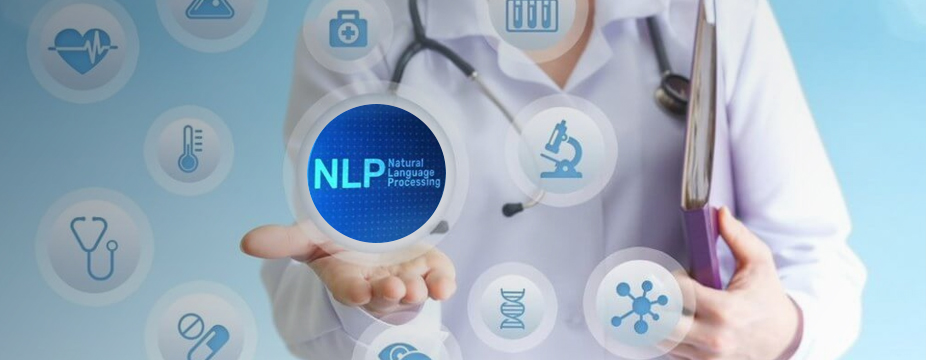NLP used in Healthcare
In recent years, the healthcare industry has undergone a remarkable transformation, driven by technological advancements. Among these, Natural Language Processing (NLP) stands out as a game-changer, offering innovative solutions to longstanding challenges in healthcare management, patient care, and medical research. This blog explores the diverse applications of NLP in healthcare and its potential to revolutionize the way we approach medical data analysis, patient interaction, and disease management.
Understanding Natural Language Processing (NLP)
Natural Language Processing (NLP) is a branch of artificial intelligence (AI) that focuses on the interaction between computers and humans through natural language. It enables machines to understand, interpret, and generate human language in a way that is both meaningful and contextually relevant. NLP algorithms are designed to process and analyze large volumes of text data, extracting valuable insights and facilitating decision-making processes.
Applications of NLP in Healthcare
- Clinical Documentation: NLP technology streamlines the process of clinical documentation by automatically extracting relevant information from unstructured text data such as physician notes, patient records, and medical transcripts. This not only saves time for healthcare professionals but also improves the accuracy and completeness of medical documentation, ensuring better continuity of care.
- Health Records Management: NLP algorithms can analyze and categorize electronic health records (EHRs), enabling healthcare providers to efficiently organize and retrieve patient information. By extracting key data elements such as diagnoses, treatments, and medications, NLP systems facilitate comprehensive patient profiling and support clinical decision-making.
- Disease Surveillance and Outbreak Detection: NLP-powered systems can monitor news articles, social media posts, and other textual sources to identify trends and patterns related to disease outbreaks and public health emergencies. By analyzing linguistic cues and contextual information, these systems can provide early warnings of potential health threats, allowing authorities to take proactive measures to mitigate risks and protect communities.
- Clinical Decision Support: NLP technology enhances clinical decision support systems by providing real-time access to relevant medical literature, guidelines, and best practices. By interpreting physicians’ queries and patient data, NLP algorithms can offer personalized treatment recommendations, alerting healthcare professionals to potential drug interactions, treatment options, and clinical trials.

- Patient Communication and Engagement: NLP-powered chatbots and virtual assistants are increasingly being used to improve patient communication and engagement. These intelligent systems can answer queries, schedule appointments, provide medication reminders, and offer personalized health advice, enhancing the overall patient experience and promoting adherence to treatment plans.
- Medical Coding and Billing: NLP algorithms automate the process of medical coding and billing by extracting relevant information from clinical documentation and assigning appropriate diagnostic and procedure codes. This reduces administrative burden, minimizes errors, and accelerates reimbursement cycles for healthcare providers.
- Clinical Research and Literature Mining: NLP enables researchers to efficiently analyze vast amounts of scientific literature, extracting insights, identifying research trends, and generating hypotheses. By uncovering hidden relationships and associations within textual data, NLP accelerates the pace of medical discovery and facilitates evidence-based decision-making in healthcare.
- Quality Improvement and Risk Management: NLP technology supports quality improvement initiatives by analyzing clinical narratives and identifying opportunities for enhancing patient safety, reducing readmissions, and optimizing healthcare processes. By flagging adverse events, errors, and deviations from best practices, NLP systems enable healthcare organizations to proactively address quality issues and mitigate risks.
Challenges and Considerations
While NLP holds tremendous promise for transforming healthcare, its adoption is not without challenges. Privacy concerns, data security risks, interoperability issues, and the need for robust validation frameworks are some of the key considerations that must be addressed to ensure the responsible and ethical use of NLP technology in healthcare settings. Moreover, the complexity of medical language, variability in technology, and the nuances of clinical context pose significant challenges for NLP algorithms, requiring ongoing refinement and adaptation to achieve optimal performance.
Natural Language Processing (NLP) is poised to revolutionize healthcare by unlocking the full potential of textual data and transforming the way we manage, analyze, and interpret medical information. From clinical documentation and health records management to disease surveillance and patient engagement, NLP offers a myriad of applications that promise to enhance efficiency, improve outcomes, and drive innovation across the healthcare ecosystem. As the field continues to evolve, healthcare stakeholders need to collaborate closely with technologists, researchers, and policymakers to harness the power of NLP responsibly and ethically, ensuring that its benefits are realized equitably and sustainably for patients, providers, and communities alike.
